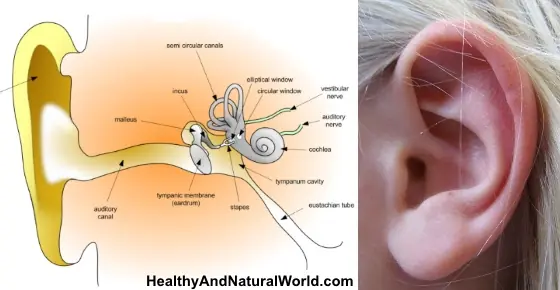
Scientists: 3 Days of Silence Is Enough to Rewire Your Brain

Silence is often dismissed as nothing more than an absence — a void where sound disappears and activity seemingly ceases. Yet modern neuroscience paints a radically different picture. Silence, far from being passive or empty, is a dynamic and active state that profoundly influences the brain's structure, function, and overall health. New scientific discoveries show that even brief periods of intentional quiet can catalyze changes in the brain comparable to those seen in long-term meditation, intense cognitive training, or sustained physical activity.
Surprisingly, just three days of purposeful silence can set in motion powerful neurobiological transformations. These changes affect everything from brain wave activity and emotional resilience to memory, sensory perception, and even the fundamental ways neurons communicate.
Silence as a Catalyst for Brain Growth
Among the most compelling findings is the impact of silence on the hippocampus, the brain region responsible for memory formation and learning. Neuroscientists have discovered that neurogenesis — the birth of new neurons — occurs in this region after just a few days of exposure to quiet. This discovery challenges traditional views that neurogenesis only happens after months of mindfulness practice or cognitive therapy.
The effect is even more pronounced for individuals who live in noisy, urban environments. For these people, silence seems to act like a neurological reset button, jump-starting a more vigorous production of brain cells. Researchers suggest that silence can counteract the cognitive strain induced by chronic noise, offering a kind of mental detox that replenishes neural resources.
Silence, then, isn’t just restorative — it's generative. It actively contributes to brain renewal.
Brainwave Shifts: From Stress to Creativity
Silence doesn’t only affect the brain’s structure; it transforms its electrical activity as well. In loud or stimulus-rich settings, the brain typically operates in beta waves — fast frequencies associated with alertness, problem-solving, and anxiety. However, prolonged exposure to silence induces a shift toward alpha and theta waves, slower rhythms that support relaxed awareness, creativity, and even deep meditative states.
By the third day of silence, study participants begin to experience accelerated access to these mental states. What might previously have required hours of mindfulness practice or deep concentration could now be reached in minutes. This shift enhances not only creativity but also intuition and emotional insight, often referred to as entering a “flow” state — a mental zone where people feel and perform at their best.
Emotional Regulation and Resilience Through Silence
The benefits of silence extend into our emotional lives as well. Brain scans show that periods of quiet strengthen the connections between emotional centers like the amygdala and regulatory regions in the prefrontal cortex. This enhanced communication helps people recognize emotional triggers sooner and respond more deliberately rather than react impulsively.
Participants in silent retreats often report more stable moods, increased patience, and a deeper sense of emotional resilience. These improvements aren’t just temporary; they often last for weeks, suggesting that silence induces long-lasting rewiring of the emotional brain.
This newfound emotional balance can also reduce symptoms of anxiety and depression, improving overall psychological well-being — without the need for external stimuli or interventions.
Heightened Sensory Awareness
Contrary to what one might expect, silence doesn’t dull our senses — it sharpens them. In the absence of constant auditory input, the brain reallocates attention and energy to other sensory systems. This phenomenon, known as cross-modal plasticity, results in enhanced vision, taste, smell, and touch.
In practical terms, people begin to notice subtle details they previously overlooked — the texture of fabric, the nuance in flavors, or faint scents in the air. This sensory enhancement is especially beneficial for professionals in creative or precision-based fields — such as chefs, artists, musicians, and surgeons — where acute sensory awareness is a critical asset.
Cognitive Clarity: Better Focus, Memory, and Problem-Solving
Silence significantly enhances cognitive function as well. Research shows that working memory, or the brain’s ability to hold and manipulate information in real-time, improves after just a few days of quiet. People also report better focus, increased mental clarity, and faster problem-solving abilities.
Interestingly, these gains have been observed across age groups and backgrounds — from high-performing professionals to older adults dealing with age-related memory decline. In all cases, the common factor was the intentional practice of silence.
What’s more, silence appears to reduce mental fatigue, allowing for more consistent attention and fewer cognitive errors in day-to-day tasks.
Astrocytes and the Brain’s Hidden Rewiring Mechanism
Recent breakthroughs have shifted our understanding of how the brain rewires itself during silence. For decades, neuroscientists believed that neurons alone were responsible for changes in brain connectivity. However, newer studies have identified a critical role played by astrocytes — star-shaped glial cells once considered merely passive support structures.
Astrocytes respond to neurochemicals like norepinephrine, which are released during periods of attention and rest. These glial cells help orchestrate synaptic changes, coordinating communication between neurons in ways that underlie learning and memory.
Silence, by reducing external stimuli and encouraging inward attention, may activate astrocytes in unique ways, accelerating the brain’s ability to rewire itself more effectively and efficiently.
The Hidden Language of Neurons: Information in Silence
On a microscopic level, silence is central to how neurons encode information. Though neurons are known for firing rapid electrical impulses called “spikes,” it's the gaps between these spikes — the silent intervals — that often carry the most crucial data.
This concept is at the core of Dr. Joe Z. Tsien’s Neural Self-Information Theory, which suggests that silence plays an essential role in brain communication. These silent moments allow the brain to encode and organize thoughts, memories, and perceptions more efficiently, much like how pauses in music give rhythm and meaning to sound.
In this light, silence is not the absence of information — it’s the container that gives information its shape.
Silence and Hearing Health: A Sound Investment
Silence also helps preserve auditory health. Studies from the University of Rochester Medical Center have shown that alternating sound with silence helps maintain the integrity of sensory cells in the ear. In animal models, regular silent intervals have been linked to slower progression of hearing loss and more precise auditory processing.
This research underscores the importance of balanced soundscapes. Environments that mix stimulation with stillness help both the ear and brain maintain long-term auditory function, especially in noisy modern settings.
Slowing the Aging Brain: Silence as Cognitive Medicine
A growing body of research suggests that silence may help protect the aging brain. Regular periods of quiet have been shown to reduce inflammation, lower stress hormones like cortisol, and support brain plasticity — all of which are critical in delaying cognitive decline.
In older adults, structured silence has improved memory retention, reduced symptoms of anxiety, and delayed the onset of age-related cognitive impairments. As the global population ages, these findings point to silence as a simple, low-cost intervention for maintaining mental agility and emotional health in later life.
Simple Ways to Integrate Silence into Daily Life
You don’t have to attend a week-long silent retreat to enjoy the benefits. Research shows that even two hours of cumulative quiet per day — divided across morning, afternoon, and evening — can yield noticeable improvements in mood, memory, and attention.
Here are a few practical ways to incorporate silence into your routine:
-
Start the day tech-free: Spend the first 20–30 minutes without screens, news, or social media.
-
Silent walking: Go for walks without music, podcasts, or calls.
-
Mindful micro-pauses: Take short breaks between tasks to sit quietly and focus on your breath.
-
Quiet evenings: Dedicate a portion of your evening to low-stimulation activities like reading or journaling.
Over time, these small moments add up, giving your brain the space it needs to reset, recharge, and rewire.
Conclusion: Silence as a Neurological Superpower
In a world that equates stimulation with productivity and noise with progress, silence stands as a radical and restorative force. Far from being an empty void, silence is a neurological necessity — a powerful catalyst for creativity, emotional balance, sensory precision, and cognitive vitality.
As science continues to reveal the intricate relationship between silence and the brain, one truth becomes increasingly clear: the absence of noise is not the absence of activity. It is the presence of potential.
By embracing quiet, we do more than escape the noise of the world — we tune into the deepest rhythms of our minds, unlocking capacities we never knew were within us. Silence, then, is not a luxury, but a vital key to becoming more focused, more resilient, and more alive.
Featured Image: Freepik
News in the same category


Most US Neurologists Who Prescribe MS Drugs Take Industry Money

Cognitive Benefit From Ginkgo biloba Monotherapy in MCI

Keeping Up on HS Management When Guidelines Are Outdated

How Your Body Changes in Your Forties and What It Means for Your Health

17 Foods That Increase Magnesium And Prevent High Blood Pressure, Blood Clots And Muscle Fatigue

New Blood Test Shows Over 90% Accuracy for Lyme Disease

Is AI Use Causing Endoscopists to Lose Their Skills?

7 silent signs of high blood sugar most people miss

If you didn’t drink more water, why are you peeing so often?

9 Foods to Eat Regularly to Maintain a Sharp Brain and Prevent Memory Loss as You Age

Top Signs That You Have Candida Infection and What to Do About It

How to Get Rid of Worms in Humans (Including Parasite Cleanse Diet)

Blood Clot in Leg: Signs and Symptoms You Shouldn’t Ignore

The Music That You Listen To Literally Causes Changes In Your Brain

8 Common Hygiene Myths You Shouldn’t Believe

Early Signs of Liver Damage & How to Strengthen Your Liver

The Best Natural Gout Treatments: Remove Uric Acid Crystallization To Prevent Gout And Joint Pain
News Post

Blood Clot in Leg: Signs and Symptoms You Shouldn’t Ignore (Pictures Included)

Weak Toilet Flush with No Suction Power? A Simple DIY Hack from the Pros

Don’t Throw Away Rotten Tomatoes – The More Rotten, the More “Valuable”! Few People Know This, So Share It with Your Family

The Most Effective Ways to Naturally Get Rid of Clogged Ears

30 Powerful Reasons You Should Stop Ignoring Purslane

DIY Aloe Vera and Clove Toner: A Natural Remedy for Aging Signs

Treat Premature Gray Hair with a Natural Dye Using Tamarind and Potato – Cheap and Effective!

Here are 3 coffee drinking habits of many young people that can accelerate aging and cause various health problems

It's not a snake, this is the "a:ss@ssin" that can crawl out of your air conditioner at home.

Most US Neurologists Who Prescribe MS Drugs Take Industry Money

Cognitive Benefit From Ginkgo biloba Monotherapy in MCI

Keeping Up on HS Management When Guidelines Are Outdated

Orlando Bloom explains ‘horrible’ side effects his weight-loss transformation caused

A:dult star reveals the clause written into her contract that helps keep her safe

How Your Body Changes in Your Forties and What It Means for Your Health
Why Should We Not Open the Bedroom Door at Night?

8 Body Language Tips to Help You Appear More Confident

Why Should You Not Close the Door When Using the Air Conditioner?

Flight Attendants Reveal Surprising Truth About Coffee Cups on Airplanes
